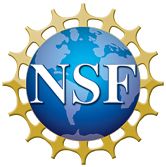Goodwell et al., 2020
Debates—Does Information Theory Provide a New Paradigm for Earth Science? Causality, Interaction, and Feedback
Goodwell, A.E., Jiang, P., Ruddell, B.L., and Kumar, P. (2020)
Water Resources Research
-
IML, GRAD STUDENT
-
IML, GRAD STUDENT
-
IML, INVESTIGATOR
Abstract
The concept of causal interactions between components is an integral part of hydrology and Earth system sciences. Modelers, decision makers, scientists, and other water resources stakeholders all utilize some notion of cause‐and‐effect to understand processes, make decisions, and infer how systems react to change. However, there are different perspectives on the meaning of causality in complex systems and, further, different frameworks and methodologies with which to detect causal interactions. We propose here that information theory (IT) provides a compelling framework for the detection of causality and discuss approaches for several levels of analyses that capture interactions that range from pairwise to multivariate in nature. We illustrate these types of analyses with an example based on weather station time series variables, in which variables may interact pairwise or jointly and on short to long time scales. In general, many unsolved or even unanticipated questions in the hydrologic sciences could benefit from this perspective.
Citation
Goodwell, A.E., Jiang, P., Ruddell, B.L., and Kumar, P. (2020): Debates—Does Information Theory Provide a New Paradigm for Earth Science? Causality, Interaction, and Feedback. Water Resources Research. DOI: 10.1029/2019WR024940
 This Paper/Book acknowledges NSF CZO grant support.
This Paper/Book acknowledges NSF CZO grant support.
Explore Further



